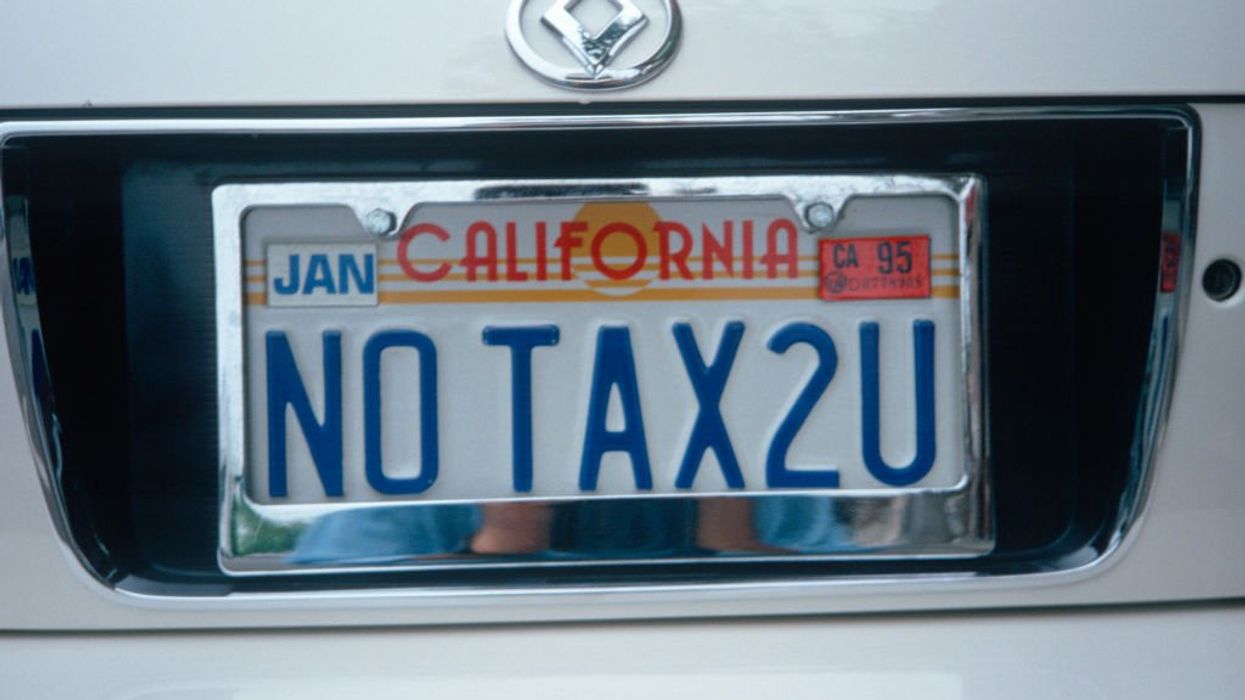
© 2024 Blaze Media LLC. All rights reserved.
EU Airlines Warn: Emissions Trading Scheme Will Spark a Trade War, Russia and China Not Bluffing
March 12, 2012
"These threats are now real and being translated into concrete action."
 As reported by The Blaze last month, China has ordered its airlines to flat-out ignore the European Union’s emission trading scheme (ETS).
As reported by The Blaze last month, China has ordered its airlines to flat-out ignore the European Union’s emission trading scheme (ETS).
And China is not alone in its opposition.
Airbus, the plane manufacturer, and several EU airlines have also lobbied the EU Commission to rethink its approach to reducing carbon emissions.
“Airbus and a group of European airlines issued another warning that the European Commission faces sparking a trade war after extending its emission trading scheme to the global industry,” The Wall Street Journal reports.
The plane maker says China has already suspended a $12 billion jet deal because of the scheme and warns “more retaliation is imminent” unless the eurozone backs off (or at least reconsiders) its ill-advised plan.
"These threats are now real and being translated into concrete action," Airbus warned in a letter last week to EU leaders and German Chancellor Angela Merkel, co-signed by Deutsche Lufthansa AG, Air Berlin PLC and engine maker MTU.
It should be pointed out that theirs is not the only letter. In fact, it is one among many similarly worded correspondence from businesses including Air France, Virgin Atlantic, and engine maker Safran that have been sent to the leaders of the U.K, France, and Spain.
"This is starting to have serious consequences on the European aviation business and could proliferate at any moment," the letter to Merkel said. The letter goes on to warn that, like China, India and Russia have also threatened to limit EU carriers' traffic rights and raise charges for EU carriers.
However, Chinese officials claim they haven’t suspended any billion dollar deal.
The Chinese government “will respect the views of the airlines” when ordering planes, a spokeswoman for the Civil Aviation Administration of China said Monday. She also said that the Chinese government would prefer “to reach a resolution through negotiation,” according to Journal report.
But whether or not China actually halted the lucrative deal, there are other reasons that the plane manufacturer might want to see a halt (or at least revision) to the EU's emissions-trading plan.
For starters, the scheme will cost the airline industry an estimated €9 billion ($11.8 billion) by the end of 2020, Reuters reported when the European Court of Justice ruled that the 2008 law was reasonable and “fair.”
 It has also been estimated by the European Commission that costs per passenger will increase by €2 ($2.60) to €12 ($15.60) for airlines participating in the cap-and-trade program.
It has also been estimated by the European Commission that costs per passenger will increase by €2 ($2.60) to €12 ($15.60) for airlines participating in the cap-and-trade program.
“British Airways and Iberia, both signatories to the letters sent to political leaders March 9, said last week that the ETS would leave them with a net ‘exposure’ of €70 million this year,” the Journal reports.
The U.S. has also joined in protesting the ETS.
Should the EU continue in this direction, the U.S. "will be compelled to take appropriate action," Secretary of State Hilary Clinton said in a letter addressed to the European Commission last December.
“The U.S. has said 41 countries have registered objections to the emissions trading system as a unilateral action in breach of international law. Lawmakers are pushing bills that would ban U.S. airlines from complying,” the Journal reports."
Whether EU officials will heed the warnings of the airline industry has yet to be seen.
“Countries opposing the ETS are due to meet again in Saudi Arabia later this year but the Commission has shown no signs of willingness to suspend the scheme, which came into force on Jan. 1,” the Journal reports.
Want to leave a tip?
We answer to you. Help keep our content free of advertisers and big tech censorship by leaving a tip today.
Want to join the conversation?
Already a subscriber?
more stories
Sign up for the Blaze newsletter
By signing up, you agree to our Privacy Policy and Terms of Use, and agree to receive content that may sometimes include advertisements. You may opt out at any time.
© 2024 Blaze Media LLC. All rights reserved.
Get the stories that matter most delivered directly to your inbox.
By signing up, you agree to our Privacy Policy and Terms of Use, and agree to receive content that may sometimes include advertisements. You may opt out at any time.


